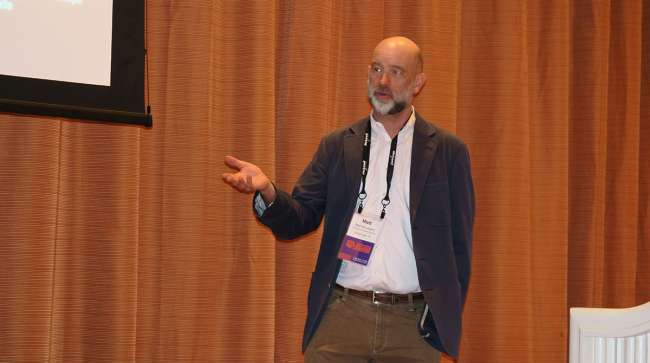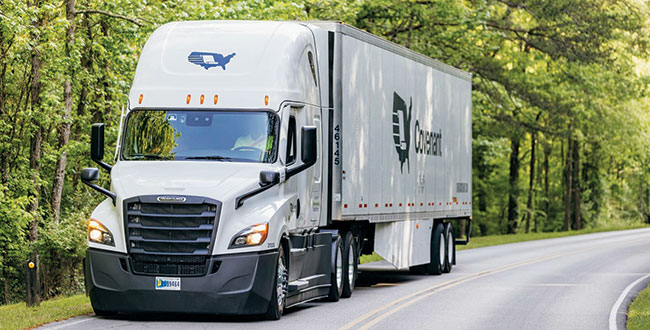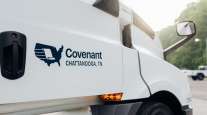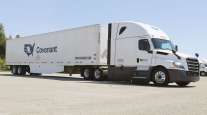Chattanooga (Tenn.) Times Free Press
Covenant Official Says Range Is Biggest Factor in EV Adoption

[Stay on top of transportation news: Get TTNews in your inbox.]
CHATTANOOGA, Tenn. — The distance a battery-powered tractor-trailer can travel before recharging is “the big holdup” for the adoption of electric trucks, a top official for Chattanooga-based Covenant Logistics said Aug. 23.
“Our biggest challenge is range,” said Matt McLelland, vice president of sustainability and innovation for one of the nation’s largest over-the-road trucking companies.
Covenant ranks No. 40 on the Transport Topics Top 100 list of the largest for-hire carriers in North America.

(Covenant Logistics Group)
McLelland, in remarks at a forum on electric vehicles and freight sponsored by Thrive Regional Partnership, said the company is leasing an electric truck that can achieve about 350 miles before recharging — when a driver needs about twice that number.
He added that such a vehicle costs about $350,000 to purchase, while a diesel truck is $130,000 to $140,000.
“The investment is not insignificant,” McLelland said.
He said he’d like to see a small Chattanooga business electrify its fleet of delivery or service vehicles.
“There’s so much companies can do today,” McLelland said.
The Chattanooga area has been dubbed “freight alley” by officials and industry followers because of the cluster of businesses in the trucking and logistics sector.
Elizabeth Hammitt, EPB’s director of environmental stewardship and residential energy solutions, told the group of about 100 people that officials at the utility are excited about the direction of electric vehicles.
“We listen to our customers’ priorities,” she said. “There are challenges here to work through.”
Hammitt cited such issues as where a customer would want to place EV chargers, for example.
“There are unique solutions for each customer,” she said.
McLelland said that when diesel trucks are driven, “you’ve got a lot of sins to atone for.”
“We’re aware of the impact we have on the environment, but we’ve taken a lot of steps,” he said.
McLelland said one of Covenant’s customers recently asked the company to cost out a quote for a job using diesel and then green power.
“They looked at the green and said, ‘We’re going to go with the other,’ ” he said. “A lot of it comes down to economics. But it’s starting to turn.”
The Covenant official said he sees the future of the trucking industry as operating blended fleets of diesel-, electric- and hydrogen-powered vehicles.
“We’re excited about what the potential is nationwide, but there’s a long way to go,” he said.
Connie Vaughan, Thrive Regional Partnership’s chairwoman and a McKee Foods Co. executive, said the Collegedale-based snack food company wants to fight congestion on the road as it moves its products and protect natural resources as well.
Want more news? Listen to today's daily briefing above or go here for more info
“That’s top of the list of the McKee family,” she told the group.
Tony Giarusso, of the Georgia Tech Center for Spatial Planning and Analytics and Visualization, said at the forum that a new research hub to help business and government in the area make better decisions about infrastructure is up and running online.
Called the Greater Chattanooga Freight Hub and created by work at Georgia Tech and Cleveland State Community College, the first-of-its-kind interactive open-source data platform’s aim is to better understand freight capacity and multimodal freight transportation in the tri-state area.
Distributed by Tribune Content Agency, LLC




